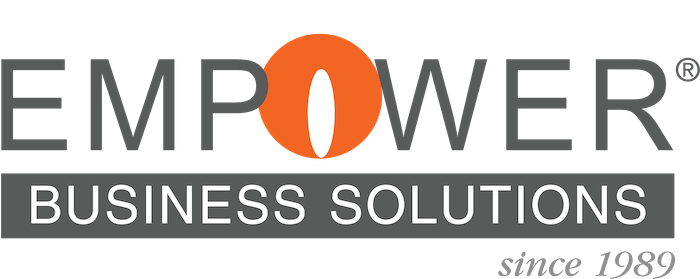Calculating the Real ROI of Your ERP Investment
When selecting a new ERP system, too many companies start and end with one question: How much does it cost?
It’s understandable. Budgets matter. Cash flow matters. But chasing the lowest price without considering long-term value can be one of the costliest decisions a business will make.
The Price Trap
The ERP market is full of solutions promising low upfront pricing. Some lure decision-makers in with ultra-low subscription costs. Others promise a full suite of tools at a fraction of the price of mainstream options. But what’s missing in the fine print?
- Limited customization
- Inadequate support
- Hidden integration costs
- Lack of scalability
- Expensive add-ons
By the time these limitations reveal themselves, your business is already entangled with precious costs, wasted time, frustrated staff, and a system you’ve outgrown or can’t fully use.
Value Over Cost: The Empower Approach
At Empower Business Solutions, we only partner with businesses we can truly support; face-to-face, regionally, and hands-on. We’ve spent over 30 years helping companies transition from outdated systems to modern ERPs that make sense for how they operate.
We’ve seen what happens when companies chase the lowest bidder: stalled implementations, siloed data, clunky workarounds, and months (or years) of missed productivity. Our clients come to us when they realize what the “cheap” option actually costs.
That’s why we focus on total cost of ownership (TCO) and real ROI, not sticker prices.
What Is Total Cost of Ownership (TCO)?
TCO includes every dollar tied to your ERP system over its lifecycle:
- Licensing and subscription costs
- Implementation and consulting
- Customization and integrations
- Training and onboarding
- Ongoing support and upgrades
- System downtime or inefficiencies
Cheap solutions often have low upfront licensing costs but come with higher downstream expenses especially when you need to fix what’s missing later.
On the other hand, a robust solution like Acumatica, implemented by a regional partner like Empower, may seem like a larger investment up front but typically delivers far greater value over time.
In the Real World
Let’s say two companies, ABC Manufacturing and XYZ Distributors, both realize their legacy accounting software can’t keep up.
ABC chooses a budget ERP vendor with a low monthly fee. XYZ selects Empower and Acumatica.
12 Months Later:
- ABC is still waiting on key integrations. Manual workarounds are costing them time and accuracy. Their team is frustrated.
- XYZ has fully transitioned. Their warehouse processes are automated. Real-time data drives decisions. Leadership has a clear view of financials and operations.
ABC paid less on day one, but far more in the long run.
The ROI of ERP Done Right
A solid ERP investment isn’t just about cutting costs, it’s about enabling growth, boosting efficiency, and driving better decision-making.
Here’s what Empower clients typically gain:
- Improved cash flow visibility
- Faster month-end closings
- Streamlined warehouse and inventory operations
- Sales team access to real-time customer data
- Greater agility during market shifts
When you invest in an ERP system that actually fits your business and a partner that implements it right; you don’t just get software. You get a transformation.
Why We Only Serve Our Region
We’ve intentionally limited our footprint. If we can’t be hands-on with your implementation, we’re not the right partner.
Here’s why:
- ERP implementation is a business process, not just a software install.
- Questions come up that can’t always be solved through a help desk or remote portal.
- We build lasting relationships. Our goal is your growth, not a tech support ticket.
When clients search “ERP Partner Near Me” or “Acumatica reseller near me”, they’re not just looking for proximity. They’re looking for someone who gets it. That’s where Empower comes in.
Looking Beyond the Initial Quote
If you’re comparing ERP quotes right now, ask these questions:
- What’s included in this price, and what isn’t?
- Who is doing the implementation? Are they certified? Local?
- How will this system grow with my business?
- What support will I receive 6 months or 6 years from now?
If the answers are vague, you’re not looking at a true long-term solution.
Your ERP Is a Business Strategy Decision
Choosing an ERP system is like choosing a building to house your business. You don’t just need something that’s cheap, you need something that’s durable, efficient, and built to grow with you.
The right system should:
- Adapt to your processes
- Scale with your growth
- Deliver useful, real-time data
- Reduce manual tasks and errors
- Provide long-term cost savings through efficiency
Final Thought
It’s never just about the price tag. ERP success comes from fit, functionality, and follow-through.
If you’re considering ERP implementation and want to do it right the first time, let’s talk.
